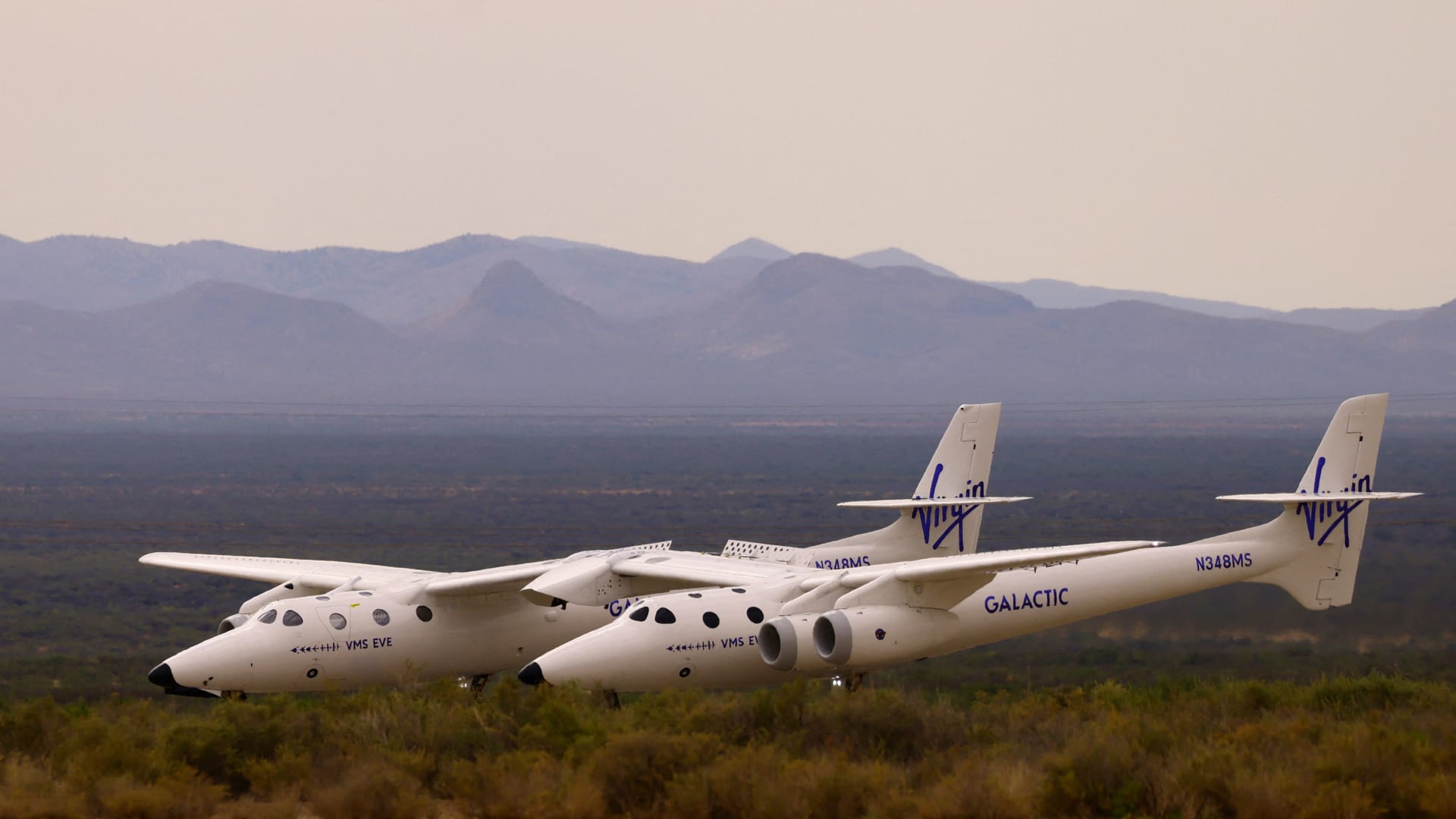Products You May Like
Virgin Galactic reported second-quarter losses on Tuesday that were slightly wider the year-ago period, as the space tourism company pushes on toward flying customers on monthly flights after launching commercial service.
For the quarter ended June 30, Virgin Galactic posted a net loss of $134.4 million, or 46 cents a share, compared with a loss of $110.7 million, or 43 cents a share, in the same period a year earlier.
The company brought in revenue of $1.9 million during the quarter – up from $357,000 in the period a year prior – generated by “commercial spaceflight and membership fees related to future astronauts.”
Virgin Galactic flew two spaceflights during the second quarter: Its final test spaceflight and its first commercial spaceflight, the latter a long-awaited step to bring its service to market. It expects to fly its second commercial spaceflight on Aug. 10.
Virgin Galactic stock slipped about 3% in after-hours trading from its close at $4.14 a share. The stock is up 19% year-to-date.
Virgin Galactic had cash and securities totaling $980 million at the end of the quarter, up from about $874 million at the end of the first quarter. That increase came as Virgin Galactic brought in funds through “at the market” sales of common stock.
“Our financial position remains strong, and we remain focused on scaling the business and delivering our Delta Class spaceships for commercial service in 2026,” Virgin Galactic CEO Michael Colglazier said in a statement.
The company has been spending heavily to expand its fleet beyond the current sole VSS Unity spacecraft. Virgin Galactic is developing its Delta-class spacecraft to fly at an improved weekly rate, noting the net loss for the second quarter was “primarily driven by an increase in research and development expenses related to the development of the future fleet.”
